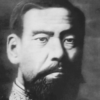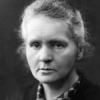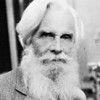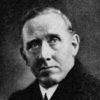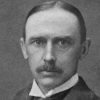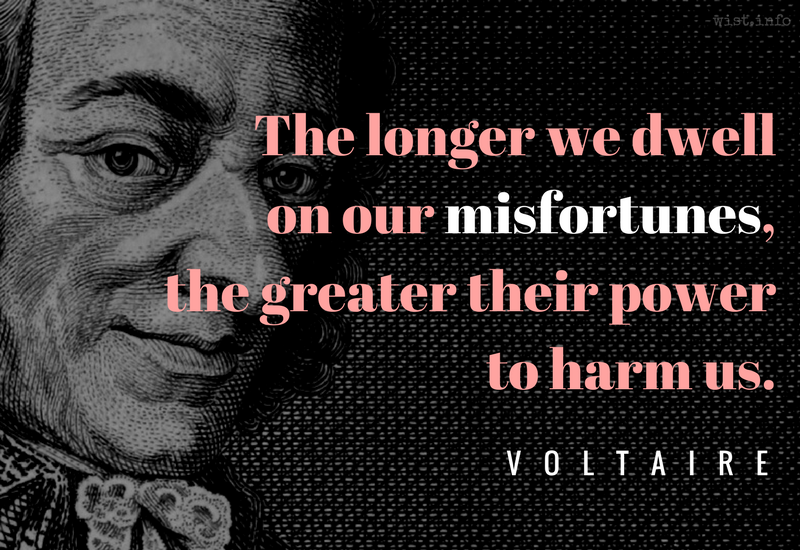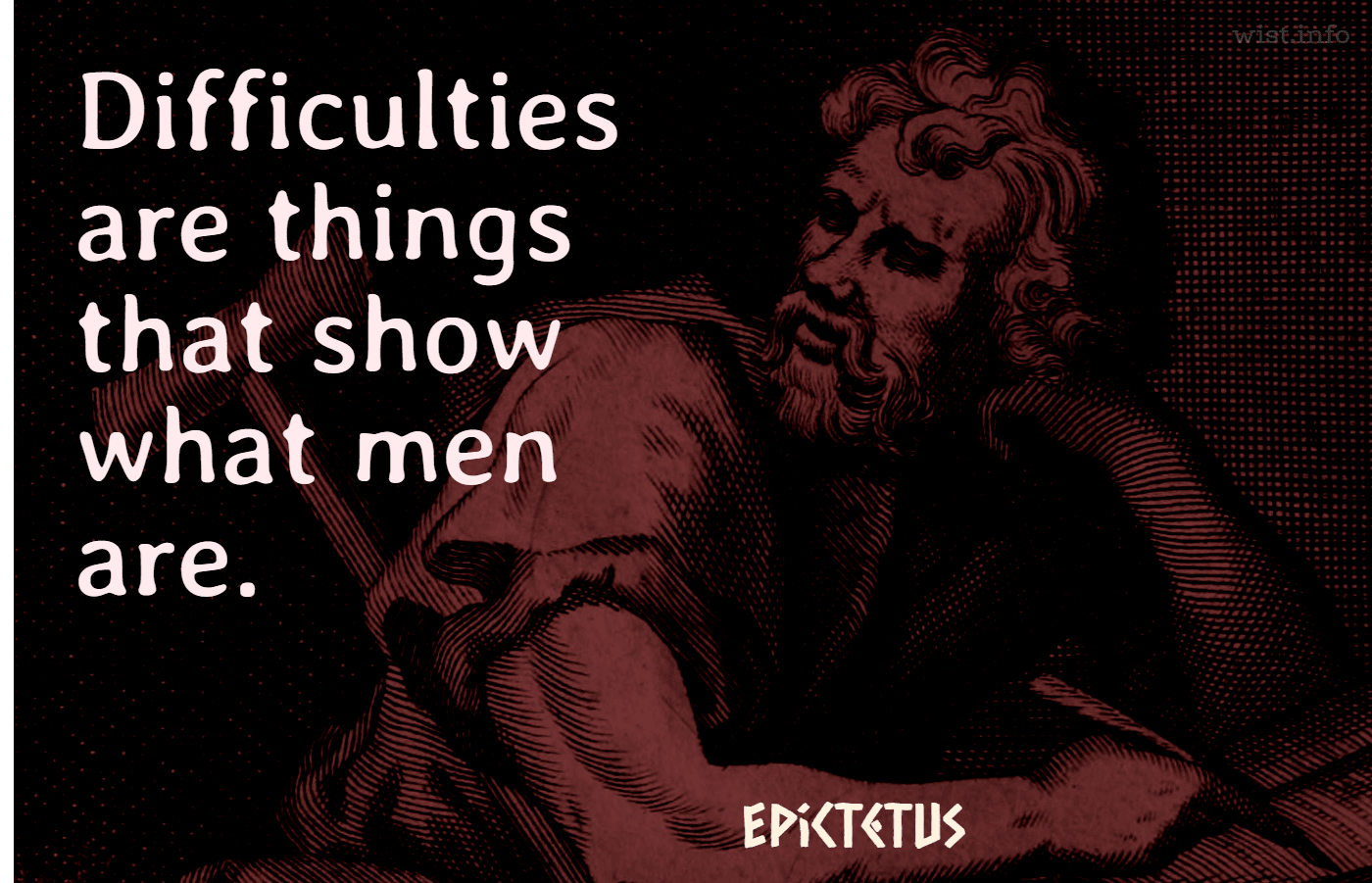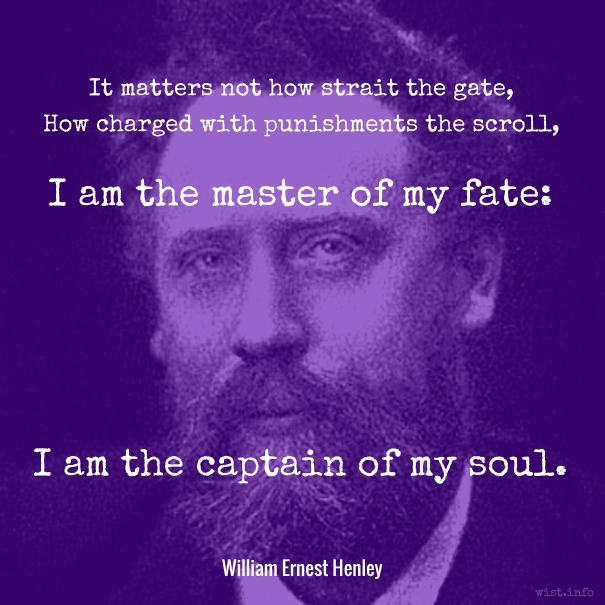The one thing that unifies men in a given age is not their individual philosophies but the dominant problem that these philosophies are designed to solve.
Jacques Barzun (1907-2012) French-American historian, educator, polymath
Romanticism and the Modern Ego, ch. 1 (1943)
(Source)
Quotations about:
difficulty
Note not all quotations have been tagged, so Search may find additional quotes on this topic.
When we are working at a difficult task and strive after a good thing we fight a righteous battle, the direct reward of which is that we are kept from much evil.
Duty is weightier than a mountain, while death is lighter than a feather.
Meiji (1852-1912) Emperor of Japan (1867-1912) [明治天皇, Meiji-tennō; b. Mutsuhito (睦仁)]
“Imperial Rescript to Soldiers and Sailors [軍人勅諭, Gunjin Chokuyu]” (1882-01-04)
(Source)
The Rescript was the official code of ethics for military personnel, foundational to the Imperial Japanese armed forces and much of Japanese society. Officially issued by the Emperor Meiji, but actually written by oligarchs Inoue Kowashi and Yamagata Aritomo with editing by journalist Fukuchi Gen'ichiro.
Japanese source. More information on the Rescript.
Why is it that we remember with effort but forget without effort? That we learn with effort but stay ignorant without effort? That we are active with effort, and lazy without effort?
[Quid est enim, quod cum labore meminimus, sine labore obliuiscimur; cum labore discimus, sine labore nescimus; cum labore strenui, sine labore inertes sumus?]Augustine of Hippo (354-430) Christian church father, philosopher, saint [b. Aurelius Augustinus]
City of God [De Civitate Dei], Book 22, ch. 22 (22.22) (AD 412-416) [tr. Green (Loeb) (1972)]
(Source)
(Source (Latin)). Alternate translations:
What is our labour to remember things, our labour to learn, and our ignorance without this labour? our agility got by toil, and our dullness if we neglect it?
[tr. Healey (1610)]
For why is it that we remember with difficulty, and without difficulty forget? learn with difficulty, and without difficulty remain ignorant? are diligent with difficulty, and without difficulty are indolent?
[tr. Dods (1871)]
How difficult it is to remember, how easy to forget; how hard to learn and how easy to be ignorant; how difficult to make an effort and how easy to be lazy.
[tr. Walsh/Honan (1954)]
How is it that what we learn with toil we forget with ease? that it is hard to learn, but easy to be in ignorance? That activity goes against the grain, while indolence is second nature?
[tr. Bettenson (1972)]
Why is it that we remember with such difficulty, but forget so easily? Why is it that we learn with such difficulty, yet so easily remain ignorant? Why is it that we are vigorous with such difficulty, yet so easily inert?
[tr. Dyson (1998)]
It seems that life is not easy for any of us. But what of that? We must have perseverance and above all confidence in ourselves. We must believe that we are gifted for something, and that this thing, at whatever cost, must be attained.
[La vie n’est facile pour aucun de nous. Mais quoi, il faut avoir de la persévérance, et surtout de la confiance en soi. Il faut croire que l’on est doué pour quelque chose, et que, cette chose, il faut l’atteindre coûte que coûte.]
Marie Curie (1867-1934) Polish-French physicist and chemist [b. Maria Salomea Skłodowska]
Letter to her brother Joseph (1894-03-18)
(Source)
(French (Source))
As quoted in Eve Curie Labouisse, Madame Curie: A Biography, ch. 9 (1937) [tr. Sheean (1938)].
Even cowards can endure hardship; only the brave can endure suspense.
Mignon McLaughlin (1913-1983) American journalist and author
The Neurotic’s Notebook, ch. 3 (1963)
(Source)
But the greatest undertakings should not be overly pondered, lest contemplation of difficulties too clearly foreseen appall you.
[Los grandes empeños aun no se han de pensar, basta ofrecerse, porque la dificultad, advertida, no ocasione el reparo.]
Baltasar Gracián y Morales (1601-1658) Spanish Jesuit priest, writer, philosopher
The Art of Worldly Wisdom [Oráculo Manual y Arte de Prudencia], § 204 (1647) [tr. Fischer (1937)]
(Source)
(Source (Spanish)). Alternate translations:
As to great enterprizes, we must not stand reasoning, it is enough that we embrace them when they present, lest the consideration of their difficulty make us abandon the attempt.
[Flesher ed. (1685)]
Great undertakings are not to be brooded over, lest their difficulty when seen causes despair.
[tr. Jacobs (1892)]
In moments of great danger, don't even think, simply act. Don't dwell on the difficulties.
[tr. Maurer (1992)]
I praise Thee while my days go on;
I love Thee while my days go on!
Through dark and dearth, through fire and frost,
With emptied arms and treasure lost,
I thank Thee while my days go on.
What do we live for, if it is not to make life less difficult to each other?
George Eliot (1819-1880) English novelist [pseud. of Mary Ann Evans]
Middlemarch, Book 8, ch. 72 [Dorothea] (1871)
(Source)
The Promised Land always lies on the other side of a wilderness.
Havelock Ellis (1859-1939) British sexologist, physician, social reformer [Henry Havelock Ellis]
The Dance of Life, ch. 5 “The Art of Religion,” sec. 4 (1923)
(Source)
Do not ask God the way to heaven; he will show you the hardest one.
Stanislaw Lec (1909-1966) Polish aphorist, poet, satirist
Unkempt Thoughts [Myśli nieuczesane] (1957) [tr. Gałązka (1962)]
(Source)
These are times in which a Genious would wish to live. It is not in the still calm of life, or the repose of a pacific station, that great characters are formed. Would Cicero have shone so distinguished an orater, if he had not been roused, kindled and enflamed by the Tyranny of Catiline, Millo, Verres and Mark Anthony. The Habits of a vigorous mind are formed in contending with difficulties. All History will convince you of this, and that wisdom and penetration are the fruits of experience, not the Lessons of retirement and leisure. Great necessities call out great virtues. When a mind is raised, and animated by scenes that engage the Heart, then those qualities which would otherways lay dormant, wake into Life, and form the Character of the Hero and the Statesman.
Abigail Adams (1744-1818) American correspondent, First Lady (1797-1801)
Letter to John Quincy Adams (19 Jan 1780)
(Source)
Written when John Quincy was twelve, in Paris with his father for the peace negotiations with Britain.
Happiness does not come from doing easy work but from the afterglow of satisfaction that comes after the achievement of a difficult task that demanded our best.
Wilferd A. Peterson (1900-1995) American writer, magazine editor
“The Art of Happiness,” This Week Magazine (1961-02-04)
(Source)
Collected in The Art of Living (1961).
Almost universally credited, without citation, to Theodore Isaac Rubin, but I've been unable to find the phrase in Rubin's works or credited to him earlier than Peterson's essay.
Failure isn’t about a lack of “natural intelligence,” whatever that is. Instead, failure is born from a messy combination of bad circumstances: high anxiety, low motivation, gaps in background knowledge. Most of all, we fail because, when the moment comes to confront our shortcomings and open ourselves up to teachers and peers, we panic and deploy our defenses instead.
Ben Orlin (b. c. 1988) American math teacher, author
“What It Feels Like to Be Bad at Math,” Slate (29 Apr 2013)
(Source)
Originally posted on his blog: What It Feels Like to Be Bad at Math – Math with Bad Drawings.
I believe that no endeavor that is worthwhile is simple in prospect; if it is right, it will be simple in retrospect.
Edward Teller (1908-2003) Hungarian-American theoretical physicist
Quoted by Judith Shoolery, personal communication (2004)
(Source)
Quoted in István Hargittai, The Martians of Science: Five Physicists Who Changed the Twentieth Century (2006).
Just about everything in this world is easier said than done, with the exception of “systematically assisting Sisyphus’s stealthy, Syst-susceptible sister,” which is easier done than said.
The difficult is what takes a little time; the impossible is what takes a little longer.
Fridtjof Nansen (1861-1930) Norwegian explorer, scientist, diplomat, humanitarian
Quoted in Listener (14 Dec 1939)
(Source)
Every game ever invented by mankind, is a way of making things hard for the fun of it. The great fun, of course, is in making the hard look easy.
John Ciardi (1916-1986) American poet, writer, critic
An Introduction to Literature: How does a poem mean? (1959)
(Source)
After all, the saddest thing that can happen to a man is to carry no burden. To be bent under too great a load is bad; to be crushed by it is lamentable, but even in that there are possibilities that are glorious. But to carry no load at all — there is nothing in that. No one seems to arrive at any goal really worth reaching in this world who does not come to it heavy laden.
Edward Sandford Martin (1856-1939) American writer and editor
In a New Century, ch. 21 “Deafness” (1903)
Quoted by Theodore Roosevelt, Speech, New York State Agricultural Association, Syracuse (7 Sep 1903).
To cut out every negative root would simultaneously mean choking off positive elements that might arise from it further up the stem of the plant. We should not feel embarrassed by our difficulties, only by our failure to grow anything beautiful from them.
Alain de Botton (b. 1969) Swiss-British author
The Consolations of Philosophy, ch. 6 “Consolation for Difficulties” (2000)
(Source)
Discussing Nietzsche.
‘Tis hard bewildering riddles to compose
And labour lost to work at nonsense prose.[Turpe est difficiles habere nugas,
Et stultus labor est ineptiarum.]Martial (AD c.39-c.103) Spanish Roman poet, satirist, epigrammatist [Marcus Valerius Martialis]
Epigrams [Epigrammata], Book 2, epigram 86 (2.86.9-10) (AD 86) [tr. Francis & Tatum (1924), #105]
(Source)
Discussing writing elaborate or highly stylized poetry forms. (Source (Latin)). Alternate translations:
Disgraceful 't is unto a poet's name
Difficult toys to make his highest am:
The labour's foolish that doth rack the brains
For things have nothing in them, but much pains.
[tr. Killigrew (1695)]
How foolish is the toil of trifling cares.
[tr. Johnson (1750); he credits the translation Elphinston]
How pitifull the boast of petty feats!
How idle is the toil of mean conceits!
[tr. Elphinston (1782), 2.76]
It is disgraceful to be engaged in difficult trifles; and the labour spent on frivolities is foolish.
[tr. Amos (1858), 2.19]
It is absurd to make one's amusements difficult; and labor expended on follies is childish.
[tr. Bohn's Classical (1859)]
'Tis mean and foolish to assign
Long care and pains to trifles light.
[tr. Webb (1879)]
Disgraceful ’tis to treat small things as difficult;
‘Tis silly to waste time on foolish trifles.
[ed. Harbottle (1897)]
'Tis degrading to undertake difficult trifles; and foolish is the labour spent on puerilities.
[tr. Ker (1919)]
'Tis hard bewildering riddles to compose
And labor lost to work at nonsense prose.
[tr. Francis & Tatum (1924)]
It's demeaning to make difficulties out of trifles, and labor over frivolities is foolish.
[tr. Shackleton Bailey (1993)]
It is absurd to make trifling poetry difficult, and hard work on frivolities is foolish.
[tr. Williams (2004)]
The Latin phrase was used by Addison as the epigram of The Spectator #470 (29 Aug 1712).
Life is thick sown with thorns, and I know no other remedy than to pass quickly through them. The longer we dwell on our misfortunes, the greater is their power to harm us.
[La vie est hérissée d’épines, & je ne sçais d’autre remède, que de passer vite à travers ces broussailles. C’est donner de la consistance aux maux, que de trop s’y arrêter.]
Voltaire (1694-1778) French writer [pseud. of Francois-Marie Arouet]
(Attributed)
(Source)
(Source (French)). Quoted in Louis Mayeul Chaudon, ed., Historical and Critical Memoirs of the Life and Writings of M. de Voltaire [Mémoires Pour Servir à L’Histoire de M. de Voltaire], Part 2, "Anecdotes Sur Voltaire (1785, tr. 1786). The English translation is also quoted in The Lady's Magazine, "Anecdotes of Voltaire" (Jul 1786). Voltaire used a similar metaphor in a 1769 letter ("La vie est hérissée de ces épines").
More discussion: Life Is Thick Sown with Thorns, and I Know No Other Remedy Than To Pass Quickly Through Them – Quote Investigator.
That fortitude which has encountered no dangers, that prudence which has surmounted no difficulties, that integrity which has been attacked by no temptations, can at best be considered but as gold not yet brought to the test, of which therefore the true value cannot be assigned.
Samuel Johnson (1709-1784) English writer, lexicographer, critic
The Rambler, #150 (24 Aug 1751)
(Source)
These are times in which a genius would wish to live. It is not in the still calm of life, or in the repose of a pacific station, that great characters are formed. The habits of a vigorous mind are formed in contending with difficulties. Great necessities call out great virtues.
The Difficult is that which can be done immediately; the Impossible is that which takes a little longer.
George Santayana (1863-1952) Spanish-American poet and philosopher [Jorge Agustín Nicolás Ruíz de Santayana y Borrás]
(Attributed)
Quoted in Reader's Digest (Nov 1939), but without citation. The sentiment has a number of antecedents (see discussion here).
We are in difficulties on all sides, but never cornered; we see no answer to our problems, but never despair; we have been persecuted, but never deserted; knocked down, but never killed.
The Bible (The New Testament) (AD 1st - 2nd C) Christian sacred scripture
2 Corinthians 4:8-9 [JB (1966)]
(Source)
Alternate translations:
We are troubled on every side, yet not distressed; we are perplexed, but not in despair; persecuted, but not forsaken; cast down, but not destroyed.
[KJV (1611)]
We are often troubled, but not crushed; sometimes in doubt, but never in despair; there are many enemies, but we are never without a friend; and though badly hurt at times, we are not destroyed.
[GNT (1976)]
We are afflicted in every way, but not crushed; perplexed, but not driven to despair; persecuted, but not forsaken; struck down, but not destroyed.
[NRSV (1989 ed.)]
We are hard pressed on every side, but not crushed; perplexed, but not in despair; persecuted, but not abandoned; struck down, but not destroyed.
[NIV (2011 ed.)]
We are experiencing all kinds of trouble, but we aren’t crushed. We are confused, but we aren’t depressed. We are harassed, but we aren’t abandoned. We are knocked down, but we aren’t knocked out.
[CEB (2011)]
If thy Business be perplexed, divide it, and look upon all its Parts and sides.
Thomas Fuller (1654-1734) English physician, preacher, aphorist, writer
Introductio ad Prudentiam, # 583 (1725)
(Source)
Approach the easy as though it were difficult, and the difficult as though it were easy; the first, lest overconfidence make you careless, and the second, lest faint-heartedness make you afraid.
[Lo fácil se ha de emprender como dificultoso, y lo dificultoso como fácil. Allí porque la confianza no descuide, aquí porque la desconfianza no desmaye.]
Baltasar Gracián y Morales (1601-1658) Spanish Jesuit priest, writer, philosopher
The Art of Worldly Wisdom [Oráculo Manual y Arte de Prudencia], § 204 (1647) [tr. Fischer (1937)]
(Source)
(Source (Spanish)). Alternate translations:
What is easie ought to be set about, as if it were difficult; and what is difficult as if it were easie. The one for fear of slackening through too much confidence; and the other for fear of losing courage through too much apprehensiveness.
[Flesher ed. (1685)]
Attempt easy tasks as if they were difficult, and difficult as if they were easy. In the one case that confidence may not fall asleep, in the other that it may not be dismayed.
[tr. Jacobs (1892)]
Undertake the easy as though it were difficult, and the difficult as though it were easy, so as not to grow overconfident or discouraged.
[tr. Maurer (1992)]
EDDIE: Kid, life’s hard. But it’s a lot harder if you’re stupid.
Paul Monash (1917-2003) American producer and screenwriter
The Friends of Eddie Coyle (movie) (1973)
Screenplay based on the novel by George V. Higgins (though the line is not in the book). Played in the movie by Robert Mitchum, to whom the quote is often attributed.
If Afflictions refine some, they consume others.
Thomas Fuller (1654-1734) English physician, preacher, aphorist, writer
Gnomologia: Adages and Proverbs, #2666 (1732)
(Source)
Life is sometimes hard. Things go wrong, in life and in love and in business and in friendship and in health and in all the other ways that life can go wrong. And when things get tough, this is what you should do.
Make. good. art.
I’m serious. Husband runs off with a politician? Make good art. Leg crushed and then eaten by mutated boa constrictor? Make good art. IRS on your trail? Make good art. Cat exploded? Make good art. Somebody on the Internet thinks what you do is stupid or evil or it’s all been done before? Make good art. Probably things will work out somehow, and eventually time will take the sting away, but that doesn’t matter. Do what only you do best. Make. good. art.
Make it on the good days too.Neil Gaiman (b. 1960) British author, screenwriter, fabulist
Speech (2012-05-17), Commencement, University of the Arts, Philadelphia [10:08]
(Source)
(Source (Video)). In the video, he starts it as "Sometimes life is hard." In the middle, he says it as, "Somebody on the Internet thinks what you're doing ..." He also adds "Make it on the bad days" before the final sentence.
DUKE SENIOR: Sweet are the uses of adversity,
Which, like the toad, ugly and venomous,
Wears yet a precious jewel in his head.William Shakespeare (1564-1616) English dramatist and poet
As You Like It, Act 2, sc. 1, l. 12ff (2.1.12-14) (1599)
(Source)
The gates of hell are open night and day;
Smooth the descent, and easy is the way:
But to return, and view the cheerful skies,
In this the task and mighty labor lies.[Facilis descensus Averno:
Noctes atque dies patet atri ianua Ditis;
Sed revocare gradum superasque evadere ad auras,
Hoc opus, hic labor est.]Virgil (70-19 BC) Roman poet [b. Publius Vergilius Maro; also Vergil]
The Aeneid [Ænē̆is], Book 6, l. 126ff (6.126-129) [The Sybil] (29-19 BC) [tr. Dryden (1697)]
(Source)
(Source (Latin)). Alternate translations:
To hel's an easie way,
Black Pluto's gates stand open night and day,
But to return, and the bright aire to view,
This is the worke, the labour of a few.
[tr. Ogilby (1649)]
Easy is the path that leads down to hell; grim Pluto's gate stands open night and day: but to retrace one's steps, and escape to the upper regions, this is a work, this is a task.
[tr. Davidson/Buckley (1854)]
The journey down to the abyss
Is prosperous and light:
The palace-gates of gloomy Dis
Stand open day and night:
But upward to retrace the way
And pass into the light of day,
There comes the stress of labour; this
May task a hero's might.
[tr. Conington (1866)]
Easy the way
Down to Avernus; night and day the gates
Of Dis stand open. But to retrace thy steps
And reach the upper air, -- here lies the task,
The difficulty here.
[tr. Cranch (1872)]
Easy is the descent into hell; all night and day the gate of dark Dis stands open; but to recall thy steps and issue to upper air, this is the task and burden.
[tr. Mackail (1885)]
Avernus' road is easy faring down;
All day and night is open wide the door of Dis the black;
But thence to gain the upper air, and win the footsteps back,
This is the deed, this is the toil.
[tr. Morris (1900)]
Down to Avernus the descent is light,
The gate of Dis stands open day and night.
But upward thence thy journey to retrace,
There lies the labour; 'tis a task of might.
[tr. Taylor (1907), st. 19, l. 166ff]
The downward path to death
Is easy; all the livelong night and day
Dark Pluto's door stands open for a guest.
But O! remounting to the world of light,
This is a task indeed, a strife supreme.
[tr. Williams (1910)]
Easy is the descent to Avernus: night and day the door of gloomy Dis stands open; but to recall thy steps and pass out to the upper air, this is the task, this the toil!
[tr. Fairclough (1916)]
By night, by day, the portals of dark Dis
Stand open: it is easy, the descending
Down to Avernus. But to climb again,
To trace the footsteps back to the air above,
There lies the task, the toil.
[tr. Humphries (1951)]
The way to Avernus is easy;
Night and day lie open the gates of death's dark kingdom:
But to retrace your steps, to find the way back to daylight --
That is the task, the hard thing.
[tr. Day-Lewis (1952)]
Easy
the way that leads into Avernus: day
and night the door to darkest Dis is open.
But to recall your steps, to rise again
into the upper air; that is the labor;
that is the task.
[tr. Mandelbaum (1971), l. 175ff]
The way downward is easy from Avernus.
Black Dis's door stands open night and day.
But to retrace your steps to heaven's air,
There is the trouble, there is the toil.
[tr. Fitzgerald (1981)]
It is easy to go down to the underworld. The door of black Dis stands open night and day. But to retrace your steps and escape to the upper air, that is the task, that is the labor.
[tr. West (1990)]
The path to hell is easy:
black Dis’s door is open night and day:
but to retrace your steps, and go out to the air above,
that is work, that is the task.
[tr. Kline (2002)]
The road down
To Avernus is easy. Day and night
The door to black Dis stands open.
But to retrace your steps and come out
To the upper air, this is the task,
The labor.
[tr. Lombardo (2005)]
The descent to the Underworld is easy.
Night and day the gates of shadowy Death stand open wide,
but to retrace your steps, to climb back to the upper air --
there the struggle, there the labor lies.
[tr. Fagles (2006), l. 149ff]
It's easy to descend into Avernus
Night and day the door of dusky Dis lies open.
To trace your steps and see the light again:
here's the toil and effort.
[tr. Bartsch (2021)]
It is easy to go down into Hell;
Night and day, the gates of dark Death stand wide;
But to climb back again, to retrace one's steps to the upper air --
There's the rub, the task.
[Source]
For the Father of agriculture
Gave us a hard calling: he first decreed it an art
To work the fields, sent worries to sharpen our mortal wits
And would not allow his realm to grow listless from lethargy […]
So thought and experiment might forge man’s various crafts
Little by little, asking the furrow to yield the corn-blade,
Striking the hidden fire that lies in the veins of flint.[Pater ipse colendi
haud facilem esse viam voluit, primusque per artem
movit agros curis acuens mortalia corda
nec torpere gravi passus sua regna veterno […]
ut varias usus meditando extunderet artis
paulatim et sulcis frumenti quaereret herbam.
Ut silicis venis abstrusum excuderet ignem.]Virgil (70-19 BC) Roman poet [b. Publius Vergilius Maro; also Vergil]
Georgics [Georgica], Book 1, l. 121ff (1.121-124, 133-135) (29 BC) [tr. Day-Lewis (1940)]
(Source)
Telling how Jupiter made life on earth miserable for farmers so as to encourage the development of useful arts and crafts.
(Source (Latin)). Alternate translations:
Nor was Jove pleas'd tillage should easie be:
And first commands with art to plough the soyle,
On mortall hearts imposing care, and toyle;
Nor lets dull sloth benumb men where he reigns [...]
That severall arts by labour might be found,
And men in furrows seek the grain that fell,
And hidden fire from veins of flint compell.
[tr. Ogilby (1649)]
The Sire of Gods and Men, with hard Decrees,
Forbids our Plenty to be bought with Ease:
And wills that Mortal Men, inur'd to toil,
Shou'd exercise, with pains, the grudging Soil.
Himself invented first the shining Share,
And whetted Humane Industry by Care:
Himself did Handy-Crafts and Arts ordain;
Nor suffer'd Sloath to rust his active Reign[...]
That studious Need might useful Arts explore;
From furrow'd Fields to reap the foodful Store:
And force the Veins of clashing Flints t' expire
The lurking Seeds of their Cœlestial Fire.
[tr. Dryden (1709), l. 183-190, 203-206]
Nor thou repine: great Jove, with tasks untry'd
To rouse man's pow'rs, an easier way deny'd;
And first bade mortals stir with art the plain,
Lest sloth should dim the splendors of his reign [...]
That gradual use might hew out arts from man,
That corn's green blade in furrows might be fought,
And from struck flints the fiery sparkle caught.
[tr. Nevile (1767), l. 147-150, 160-162]
Not to dull Indolence and transient Toil
Great Jove resign'd the conquest of the soil:
He sent forth Care to rouse the human heart,
And sharpen genius by inventive art:
Nor tamely suffer'd earth beneath his sway
In unproductive sloth to waste away. [...]
Jove will'd that use, by long experience taught,
Should force out various arts by gradual thought,
Strike from the flint's cold womb the latent flame,
And from the answering furrow nurture claim.
[tr. Sotheby (1800)]
The Sire himself willed the ways of tillage not to be easy, and first aroused the fields by art, whetting the skill of mortals with care; nor suffered he his reign to lie inactive in heavy sloth [...] that experience, by dint of thought, might gradually hammer out the various arts, in furrows seek the blade of corn, and form the veins of flint strike out the hidden fire.
[tr. Davidson (1854)]
Our heavenly Father hath not judged it right
To leave the road of agriculture light:
'Twas he who first made husbandry a plan.
And care a whetstone for the wit of man;
Nor suffer'd he his own domains to lie
Asleep in cumbrous old-world lethargy [...]
That practice might the various arts create,
On study's anvil, by laborious dint,
The plant of corn by furrows propagate,
And strike the fire that lurks in veins of flint.
[tr. Blackmore (1871), ll. 140-145, 154-157]
The wise Father of all willed not that the path of husbandry should be easy; he was the first to break up the earth by human skill, sharpening man's wit by the cares of life, nor suffering his own domains to lie asleep in cumbrous lethargy [...] in order that practice might by slow degrees hammer out art after art on the anvil of thought, might find the corn-blade by delving the furrow, and strike from veins of flint the fire that Jove had hid.
[tr. Wilkins (1873)]
The great Sire himself
No easy road to husbandry assigned,
And first was he by human skill to rouse
The slumbering glebe, whetting the minds of men
With care on care, nor suffering realm of his
In drowsy sloth to stagnate [...]
that use by gradual dint of thought on thought
Might forge the various arts, with furrow's help
The corn-blade win, and strike out hidden fire
From the flint's heart.
[tr. Rhoades (1881)]
For so great Jove, the sire of all, decreed,
No works save those that took us should succeed,
Nor wills his gifts should unimproved remain.
While man inactive slumbers on the plain. [...]
Man seeks for fire concealed within the veins
Of flints, and labour groans upon the plains;
Till, one by one, worked out by frequent thought,
Are crude inventions to perfection brought.
[tr. King (1882), ll. 123-126, 135-138ff]
Father Jove himself willed that the modes of tillage should not be easy, and first stirred the earth by artificial means, whetting the minds of men by anxieties; nor suffered he his subjects to become inactive through oppressive lethargy [...] in order that man’s needs, by dint of thought, might gradually hammer out the various arts, might seek the blade of corn by ploughing, and might strike forth the fire thrust away in the veins of the flint.
[tr. Bryce (1897)]
Our Lord himself willed the way of tillage to be hard, and long ago set art to stir the fields, sharpening the wits of man with care, nor suffered his realm to slumber in heavy torpor [...] that so practice and pondering might slowly forge out many an art, might seek the corn-blade in the furrow and strike hidden fire from the veins of flint.
[tr. Mackail (1899)]
The great Sire himself
No easy road to husbandry assigned,
And first was he by human skill to rouse
The slumbering glebe, whetting the minds of men
With care on care, nor suffering realm of his
In drowsy sloth to stagnate [...]
that use by gradual dint of thought on thought
Might forge the various arts, with furrow's help
The corn-blade win, and strike out hidden fire
From the flint's heart.
[tr. Greenough (1900)]
Allfather himself hath willed
That the pathway of tillage be thorny. He first by man's art broke
Earth's crust, and by care for the morrow made keen the wits of her folk,
Nor suffered his kingdom to drowse 'neath lethargy's crushing chain [...]
That Thought on experience' anvil might shape arts manifold,
And might seek in the furrow the blade that is pledge of the harvest's gold,
And smite from the veins of flint the fire-soul hidden there.
[tr. Way (1912)]
Great Jove himself ordained for husbandry
No easy road, when first he bade earth's fields
Produce by art, and gave unto man's mind
Its whetting by hard care; where Jove is king
He suffers not encumbering sloth to bide. [...]
He purposed that experience and thought
By slow degrees should fashion and forge out
Arts manifold, should seek green blades of corn
By ploughing, and from veins of flinty shard
Hammer the fire.
[tr. Williams (1915)]
The great Father himself has willed that the path of husbandry should not run smooth, who first made art awake the fields, sharpening men’s wits by care, nor letting his kingdom slumber in heavy lethargy [...] so that experience, from taking thought, might little by little forge all manner of skills, seeking in ploughed furrows the blade of corn, striking forth the spark hidden in the veins of flint.
[tr. Fairclough (Loeb) (1916)]
The Father willed it so: He made the path
Of agriculture rough, established arts
Of husbandry to sharpen wits,
Forbidding sloth to settle on his soil
[...] So that mankind
By taking thought might learn to forge its arts
From practice: seek to bring the grain from furrows,
Strike out the fire locked up in veins of flint.
[tr. Bovie (1956)]
Jupiter, father of the gods, decided himself
that the way of the farmer should not be an easy way.
He demanded craft; he tuned our nerves with worries;
he weeded lethargy from his human fields [...]
Thus men are supposed to have found the fire that hides
in the veins of flint. By clever meditation
experience elaborates to skill ...
One can see a triumph in it: the first furrow
sprouting a row of corn ....
[tr. Slavitt (1971)]
The father of cultivation himself did not want its way to be easy and wa first to change the fields by design, sharpening mortal wits with cares, not allowing his kingdoms to become sluggish with heavy old age [...] in order that experience and reflection should beat out skills little by little and seek grain stalks in the furrows, that they should strike out fire hidden in the veins of flint.
[tr. Miles (1980)]
The Father himself
Willed that the path of tillage be not smooth,
And first ordained that skill should cultivate
The land, by care sharpening the wits of mortals,
Nor let his kingdom laze in torpid sloth [...]
That step by step practice and taking thought
Should hammer out the crafts, should seek from furrows
The blade of corn, should strike from veins of flint
The hidden fire.
[tr. Wilkinson (1982)]
The great Father himself willed it,
that the ways of farming should not be easy, and first
stirred the fields with skill, rousing men’s minds to care,
not letting his regions drowse in heavy lethargy [...]
so that thoughtful practice might develop various skills,
little by little, and search out shoots of grain in the furrows,
and strike hidden fire from veins of flint.
[tr. Kline (2001)]
The Father himself hardly
willed that agriculture would be easy when he called forth
the field with his art, whetting human minds with worries,
not letting his kingdom slip into full-blown laziness. [...]
so that, using their brains, men might gradually hammer out
many skills, like searching for stalks of wheat by plowing,
and so that they might strike the spark held in veins of flint.
[tr. Lembke (2004)]
For it was Jupiter himself who willed the ways of husbandry be ones not spared of trouble and it was he who first, through human skill, broke open land, at pains to sharpen wits of men and so prevent his own domain being buried in bone idleness [...] so that by careful thought and deed you'd hone them bit by bit, those skills, to coax from furrows blades of corn and spark shy flame from veins of flint.
[tr. Fallon (2006)]
The Father himself willed the way of husbandry to be severe, first stirred by ingenuity the fields, honing mortal skill with tribulation, and suffered not his realm to laze in lumpish sloth [...] so that need with contemplation might forge sundry arts in time, might seek in furrows the blade of wheat and strike from flinty veins the hidden spark.
[tr. Johnson (2009)]
For Father Jupiter himself ordained
That the way should not be easy. It was he
Who first established the art of cultivation,
Sharpening with their cares the skills of men,
forbidding the world he rules to slumber in ease
[...] all this so want should be
The cause of human ingenuity,
And ingenuity the cause of arts,
Finding little by little the way to plant
New crops by means of plowing, and strike the spark
To ignite the hidden fire in veins of flint.
[tr. Ferry (2015)]
Easy reading is damn hard writing.
Nathaniel Hawthorne (1804-1864) American writer
(Attributed)
Also attributed to others, including Ernest Hemingway. The reference to Hawthorne can be dated back to Maya Angelou in "The Art of Fiction," Paris Review, #116, Interview with George Plimpton (1990):
Nathaniel Hawthorne says, "Easy reading means damn hard writing."Per Wikiquote, Angelou put it differently previously, in Conversations With Maya Angelou (1989) [ed. Jeffrey M. Elliot]:
I think it's Alexander Pope who says, "Easy writing is damn hard reading," and vice versa, easy reading is damn hard writing.
Which first clause may refer in turn not to Pope but Richard Brinsley, Clio's Protest, or the Picture Varnished (1771, pub. 1819):
You write with ease, to show your breeding, But easy writing's curst hard reading.
If ever you find yourself environed with difficulties and perplexing circumstances out of which you are at a loss how to extricate yourself, do what is right, and be assured that that will extricate you the best out of the worst situations. Though you cannot see when you take one step what will be the next, yet follow truth, justice and plain dealing, and never fear their leading you out of the labyrinth in the easiest manner possible. The knot which you thought a Gordian one will untie itself before you. Nothing is so mistaken as the supposition that a person is to extricate himself from a difficulty by intrigue, by chicanery, by dissimulation, by trimming, by an untruth, by an injustice. This increases the difficulties tenfold; and those who pursue these methods get themselves so involved at length that they can turn no way but their infamy becomes more exposed.
Thomas Jefferson (1743-1826) American political philosopher, polymath, statesman, US President (1801-09)
Letter to Peter Carr (19 Aug 1785)
(Source)
Can anyone remember when times were not hard, and money was not scarce?
Ralph Waldo Emerson (1803-1882) American essayist, lecturer, poet
“Works and Days,” Society and Solitude, ch. 7 (1870)
(Source)
A man without mirth is like a waggon without springs, in which one is caused disagreeably to jolt by every pebble over which it runs. A man with mirth is like a chariot with springs, in which one can ride over the roughest road, and scarcely feel anything but a pleasant rocking motion.
Henry Ward Beecher (1813-1887) American clergyman and orator
Royal Truths (1862)
(Source)
Frequently rendered, but unsourced in this form:
A person without a sense of humor is like a wagon without springs. It's jolted by every pebble on the road.
In Proverbs from Plymouth Pulpit, "The Human Mind" [ed. Drysdale (1887)], Beecher is recorded similarly saying:
A practical, matter-of-fact man is like a wagon without springs: every single pebble on the road jolts him; but a man with imagination has springs that break the jar and jolt.
ROSALIND:O,
how full of briers is this working-day world!William Shakespeare (1564-1616) English dramatist and poet
As You Like It, Act 1, sc. 3, l. 11ff (1.3.11-12) (1599)
(Source)



